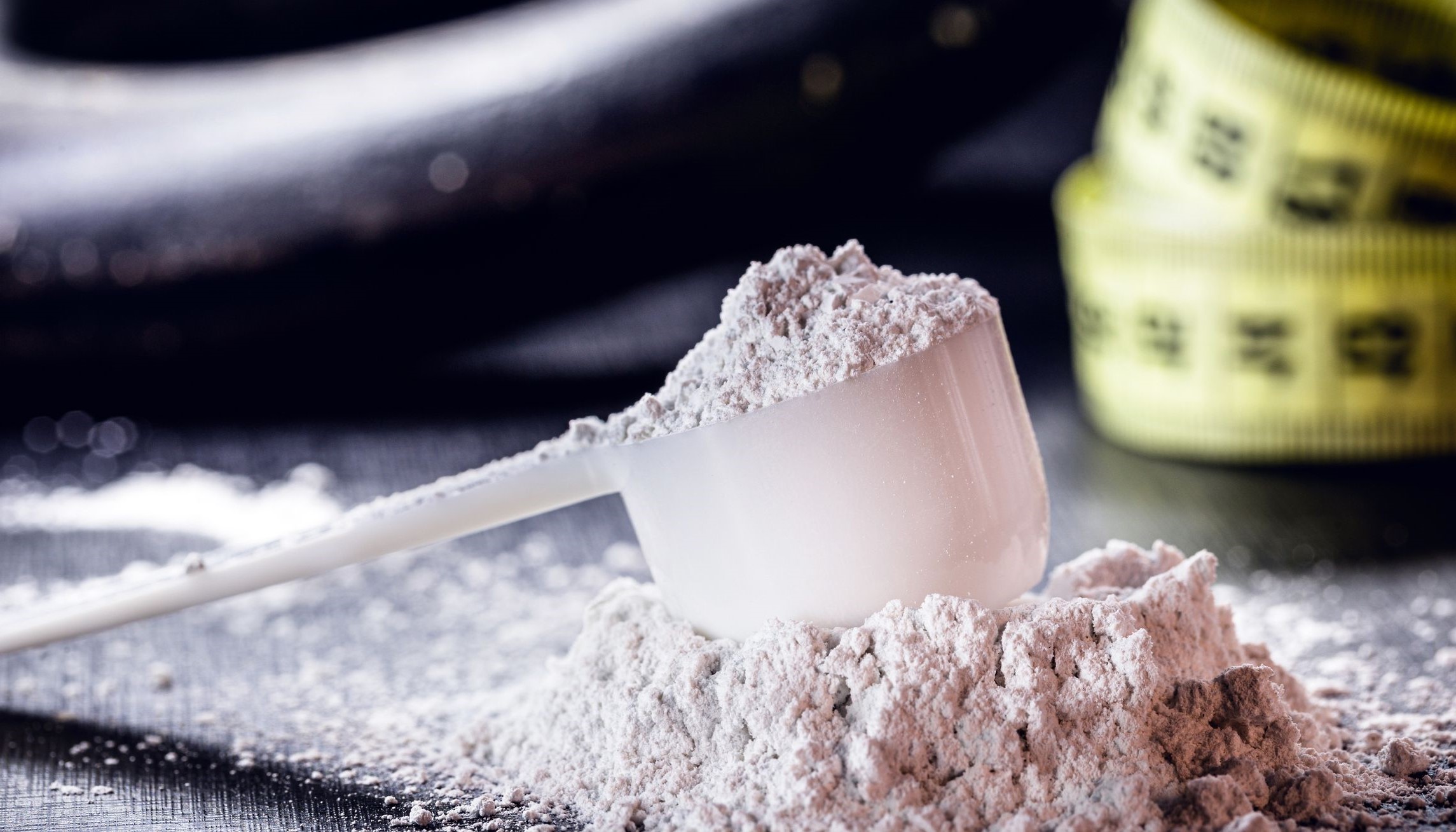Home>Health and Wellness>Maximize Your Gains: Take Creatine Before And After Your Workout!


Health and Wellness
Maximize Your Gains: Take Creatine Before And After Your Workout!
Published: February 9, 2024
Maximize your gains with the best timing for creatine intake. Learn why taking creatine before and after your workout is essential for your health and wellness.
(Many of the links in this article redirect to a specific reviewed product. Your purchase of these products through affiliate links helps to generate commission for Regretless.com, at no extra cost. Learn more)
Table of Contents
Introduction
Are you looking to elevate your workout performance and maximize your gains at the gym? If so, you've likely come across numerous supplements that promise to enhance your strength, power, and endurance. Among these, creatine stands out as one of the most extensively researched and effective supplements for improving athletic performance and muscle growth.
Creatine is a naturally occurring compound found in small amounts in various foods and produced by the body. It plays a crucial role in providing energy to the muscles during high-intensity, short-duration activities such as weightlifting and sprinting. Additionally, creatine has gained widespread popularity as a sports supplement due to its ability to increase muscle mass, improve exercise performance, and expedite recovery.
In this comprehensive guide, we will delve into the science behind creatine supplementation and explore the benefits of taking creatine both before and after your workout. By understanding the optimal timing for creatine consumption, you can harness its full potential to elevate your fitness journey and achieve your desired results.
Whether you're a seasoned athlete or a fitness enthusiast looking to enhance your training regimen, incorporating creatine into your pre- and post-workout routines can yield significant advantages. Join us as we uncover the compelling reasons why timing your creatine intake strategically can lead to remarkable improvements in strength, endurance, and muscle recovery. Let's embark on this enlightening exploration of how creatine can amplify your exercise performance and propel you closer to your fitness aspirations.
Understanding Creatine
Creatine, a naturally occurring compound in the human body, is primarily stored in the muscles and plays a pivotal role in energy production during high-intensity, short-duration activities. It is derived from amino acids, including arginine, glycine, and methionine, and is synthesized in the liver, pancreas, and kidneys. Additionally, small amounts of creatine can be obtained from dietary sources such as red meat and fish.
Once ingested, creatine is converted into phosphocreatine, which serves as a rapid and readily available energy source for the muscles. During intense physical exertion, phosphocreatine aids in the regeneration of adenosine triphosphate (ATP), the primary energy currency of the cell, allowing for sustained muscle contractions and power output.
Supplementation with creatine monohydrate, the most researched and commonly used form of creatine, has been shown to elevate the body's creatine stores, leading to enhanced physical performance and muscle adaptation. This supplementation is particularly beneficial for activities that require short bursts of intense effort, such as weightlifting, sprinting, and high-intensity interval training (HIIT).
Research has demonstrated that creatine supplementation can increase muscle creatine content by up to 20-40%, thereby augmenting the muscles' capacity to produce energy during strenuous exercise. This heightened energy availability can translate to improved strength, power, and overall exercise performance.
Furthermore, creatine has garnered attention for its potential role in promoting muscle growth and hypertrophy. By facilitating greater training volumes and enhancing recovery between sets, creatine supplementation can contribute to the development of lean muscle mass over time, making it a valuable asset for individuals seeking to optimize their resistance training outcomes.
In addition to its performance-enhancing properties, creatine has been investigated for its potential neuroprotective and cognitive benefits. Studies have suggested that creatine may exert positive effects on brain health and function, with implications for cognitive performance and neurological conditions.
Overall, understanding the fundamental mechanisms and physiological effects of creatine lays the groundwork for harnessing its potential as a versatile and impactful supplement in the realm of sports performance, muscle development, and overall well-being. With this knowledge as a foundation, we can now explore the specific advantages of taking creatine before and after workouts to maximize its benefits on exercise performance and recovery.
Benefits of Taking Creatine Before Your Workout
Taking creatine before your workout offers a myriad of advantages that can significantly enhance your exercise performance and contribute to achieving your fitness goals. By strategically incorporating creatine into your pre-workout routine, you can tap into its remarkable benefits, including:
-
Increased Muscle Creatine Stores: Consuming creatine before your workout allows for the pre-loading of your muscles with elevated creatine levels. This pre-emptive strategy ensures that your muscles are primed with an augmented supply of phosphocreatine, the key energy source for high-intensity activities. With heightened muscle creatine stores, you can potentially experience enhanced strength, power, and endurance during your workout, enabling you to push your limits and achieve greater training adaptations.
-
Improved Exercise Performance: The supplementation of creatine before your workout has been shown to enhance overall exercise performance, particularly during short-duration, high-intensity activities. By bolstering the muscles' capacity for rapid energy production, creatine can facilitate increased work output, allowing you to sustain higher levels of effort and intensity throughout your training session. This can translate to improved performance in activities such as weightlifting, sprinting, and other explosive movements, enabling you to maximize your training potential and strive for peak athletic accomplishments.
-
Enhanced Muscle Recovery: Creatine supplementation before your workout may contribute to improved muscle recovery post-exercise. By optimizing the energy resources available to the muscles, creatine can aid in mitigating exercise-induced fatigue and promoting efficient recovery processes. This can be particularly beneficial for individuals engaging in successive bouts of high-intensity training or resistance exercise, as it may help reduce the extent of muscle damage and accelerate the replenishment of energy stores, ultimately supporting a swifter recovery and readiness for subsequent training sessions.
-
Facilitated Muscle Hydration: Creatine supplementation has been associated with an increase in muscle cell hydration, potentially leading to a volumizing effect within the muscle fibers. This enhanced cellular hydration can contribute to a fuller and more pumped appearance of the muscles, which may be desirable for individuals seeking aesthetic improvements or a more pronounced muscular definition. Additionally, improved muscle hydration can support overall cellular function and metabolic processes, potentially influencing muscle performance and adaptation over time.
-
Optimized Nutrient Delivery: By taking creatine before your workout, you can harness its potential to enhance nutrient delivery and utilization within the muscles. The increased energy availability and improved cellular hydration resulting from creatine supplementation may create an environment conducive to efficient nutrient uptake and utilization, which can support muscle function, repair, and growth. This synergistic effect can complement your pre-workout nutrition and further optimize the physiological responses to exercise, potentially amplifying the benefits of your training regimen.
Incorporating creatine into your pre-workout routine can thus serve as a strategic approach to augmenting your exercise performance, promoting muscle recovery, and maximizing the physiological adaptations elicited by your training. By capitalizing on the benefits of taking creatine before your workout, you can set the stage for a more impactful and rewarding training experience, bringing you closer to your fitness aspirations with each session.
Benefits of Taking Creatine After Your Workout
After completing a rigorous workout session, the body undergoes a series of physiological changes and adaptations, making the post-exercise period a critical window for initiating recovery and optimizing the benefits of training. Incorporating creatine supplementation after your workout can yield several compelling advantages that contribute to the overall efficacy of your training regimen and support your fitness objectives.
-
Replenishment of Muscle Creatine Stores: Following an intense workout, muscle creatine stores may become depleted due to the high energy demands placed on the muscles during exercise. By consuming creatine after your workout, you can initiate the replenishment of these depleted creatine stores, ensuring that your muscles are adequately primed for subsequent training sessions. This replenishment process can contribute to maintaining optimal levels of phosphocreatine, the rapid energy source crucial for explosive and high-intensity activities, thereby supporting consistent performance across multiple workouts.
-
Enhanced Muscle Recovery and Repair: The post-exercise period is characterized by heightened muscle protein synthesis and the repair of exercise-induced damage. Creatine supplementation after your workout can complement these processes by providing the muscles with an additional source of readily available energy. This can aid in the preservation of muscle glycogen stores and the facilitation of efficient recovery, potentially reducing the extent of muscle damage and accelerating the restoration of muscle function. By supporting the recovery phase, creatine can help minimize the risk of overtraining and enhance the body's readiness for subsequent training sessions.
-
Promotion of Muscle Adaptation and Growth: The anabolic properties of creatine make it a valuable asset for individuals seeking to optimize muscle adaptation and growth. By consuming creatine after your workout, you can capitalize on the heightened receptivity of the muscles to nutrient uptake and utilization, a phenomenon commonly referred to as the "anabolic window." During this window, the muscles are primed to absorb nutrients and initiate the processes of repair and growth, making it an opportune time to introduce creatine as a catalyst for muscle hypertrophy and recovery.
-
Support for Hydration and Cellular Function: Creatine supplementation after your workout may contribute to enhanced muscle cell hydration, which can play a role in supporting cellular function and metabolic processes. Adequate muscle hydration is essential for optimizing muscle performance, maintaining cellular integrity, and facilitating nutrient transport, all of which are crucial for the recovery and adaptation processes following exercise. By promoting muscle hydration, creatine can contribute to an environment conducive to efficient recovery and adaptation, potentially enhancing the overall quality of your training outcomes.
Incorporating creatine into your post-workout routine can thus serve as a strategic approach to optimizing the recovery process, promoting muscle adaptation, and harnessing the physiological responses elicited by exercise. By leveraging the benefits of taking creatine after your workout, you can position yourself for continued progress and performance improvements, ultimately advancing closer to your fitness aspirations with each training session.
How to Incorporate Creatine into Your Pre-Workout Routine
Incorporating creatine into your pre-workout routine can be a strategic and rewarding endeavor, offering a systematic approach to optimizing your exercise performance and maximizing the benefits of creatine supplementation. To effectively integrate creatine into your pre-workout regimen, consider the following guidelines and recommendations:
-
Choose the Right Form: When incorporating creatine into your pre-workout routine, opt for creatine monohydrate, the most researched and well-established form of creatine supplementation. Creatine monohydrate is highly soluble and bioavailable, making it an ideal choice for pre-workout consumption. Additionally, it is cost-effective and has a strong scientific backing, ensuring its efficacy in enhancing exercise performance and muscle adaptation.
-
Establish a Loading Phase: To expedite the saturation of muscle creatine stores, consider initiating a loading phase when first incorporating creatine into your pre-workout routine. During the loading phase, consume around 20 grams of creatine monohydrate per day, divided into smaller doses, for 5-7 days. This loading strategy aims to rapidly elevate muscle creatine levels, priming the muscles for heightened energy production and improved exercise performance.
-
Determine Optimal Timing: Identify the optimal timing for consuming creatine as part of your pre-workout routine. Aim to ingest creatine approximately 30-60 minutes before your workout session to allow for adequate absorption and utilization by the muscles. This timing aligns with the body's natural energy pathways, ensuring that the elevated creatine levels are readily available to support your training endeavors.
-
Combine with Carbohydrates: Consider pairing your pre-workout creatine intake with a source of carbohydrates to facilitate its uptake and utilization by the muscles. Carbohydrates can enhance the uptake of creatine by promoting insulin release, creating an environment conducive to nutrient transport and storage within the muscles. Opt for easily digestible carbohydrates such as fruit, sports drinks, or a small serving of complex carbohydrates to complement your pre-workout creatine consumption.
-
Stay Hydrated: Ensure adequate hydration alongside your pre-workout creatine supplementation. Hydration plays a crucial role in supporting muscle function, nutrient transport, and overall exercise performance. By maintaining optimal hydration levels, you can maximize the potential benefits of creatine and create an environment conducive to enhanced training adaptations.
By incorporating these strategies into your pre-workout routine, you can effectively harness the performance-enhancing properties of creatine and optimize its impact on your exercise endeavors. This systematic approach to integrating creatine into your pre-workout regimen can empower you to elevate your training experience, amplify your physical performance, and progress closer to your fitness goals with each workout session.
Read more: Top 5 Shoulder Workouts For Massive Gains!
How to Incorporate Creatine into Your Post-Workout Routine
Incorporating creatine into your post-workout routine is a strategic and impactful endeavor that can optimize the recovery process, promote muscle adaptation, and maximize the physiological responses elicited by exercise. To effectively integrate creatine into your post-workout regimen, consider the following guidelines and recommendations:
-
Select the Appropriate Form: When incorporating creatine into your post-workout routine, opt for creatine monohydrate, the most extensively researched and scientifically validated form of creatine supplementation. Creatine monohydrate offers high solubility and bioavailability, ensuring efficient absorption and utilization by the muscles during the post-exercise period.
-
Determine the Timing: Identify the optimal timing for consuming creatine as part of your post-workout routine. Aim to ingest creatine immediately following your workout session, capitalizing on the heightened receptivity of the muscles to nutrient uptake and utilization during this critical period. This timing aligns with the "anabolic window," a phase characterized by enhanced muscle protein synthesis and nutrient transport, making it an opportune time to introduce creatine for promoting recovery and muscle adaptation.
-
Establish a Maintenance Phase: After initiating creatine supplementation in your post-workout routine, transition to a maintenance phase where you consume a lower daily dose of creatine monohydrate to sustain elevated muscle creatine levels. A typical maintenance dose ranges from 3-5 grams per day, ensuring that the muscles remain adequately primed for subsequent training sessions and ongoing performance improvements.
-
Pair with Protein: Consider combining your post-workout creatine intake with a high-quality protein source to support muscle repair, recovery, and growth. Protein consumption following exercise complements the effects of creatine by providing essential amino acids for muscle protein synthesis, further enhancing the adaptive responses to training. Opt for fast-digesting protein sources such as whey protein or a protein shake to synergistically augment the benefits of post-workout creatine supplementation.
-
Prioritize Hydration: Ensure optimal hydration alongside your post-workout creatine consumption. Adequate hydration is crucial for supporting the recovery process, facilitating nutrient transport, and maintaining cellular function. By prioritizing hydration, you can maximize the effectiveness of creatine supplementation and create an environment conducive to accelerated recovery and muscle adaptation.
By integrating these strategies into your post-workout routine, you can leverage the benefits of creatine to optimize the recovery phase, promote muscle adaptation, and enhance the overall quality of your training outcomes. This systematic approach to incorporating creatine into your post-workout regimen empowers you to position yourself for continued progress, performance improvements, and accelerated advancements toward your fitness aspirations.
Conclusion
In conclusion, the strategic incorporation of creatine into both pre- and post-workout routines can yield a multitude of benefits that significantly enhance exercise performance, support muscle recovery, and promote long-term adaptations. By understanding the physiological mechanisms and practical applications of creatine supplementation, individuals can optimize their training regimens and maximize the impact of this versatile supplement on their fitness endeavors.
Taking creatine before a workout offers advantages such as increased muscle creatine stores, improved exercise performance, enhanced muscle recovery, facilitated muscle hydration, and optimized nutrient delivery. These benefits empower individuals to push their limits, sustain higher levels of effort, and expedite the recovery process, ultimately contributing to more impactful and rewarding training experiences.
Similarly, incorporating creatine after a workout serves as a strategic approach to replenishing muscle creatine stores, enhancing muscle recovery and repair, promoting muscle adaptation and growth, and supporting hydration and cellular function. By leveraging the post-exercise period to introduce creatine, individuals can capitalize on the body's heightened receptivity to nutrients and initiate the processes of recovery and adaptation, setting the stage for continued progress and performance improvements.
Furthermore, the guidelines for integrating creatine into pre- and post-workout routines provide a systematic and evidence-based approach to maximizing the benefits of creatine supplementation. By selecting the appropriate form of creatine, determining optimal timing, establishing loading and maintenance phases, and complementing creatine intake with essential nutrients, individuals can harness the full potential of creatine to elevate their training experiences and propel themselves closer to their fitness goals.
In essence, the strategic timing of creatine intake before and after workouts aligns with the body's natural energy pathways and recovery processes, creating an environment conducive to enhanced exercise performance, accelerated recovery, and sustained progress. By embracing the science-backed strategies for incorporating creatine into pre- and post-workout routines, individuals can unlock the transformative potential of this supplement and embark on a journey towards realizing their fitness aspirations with confidence and efficacy.














